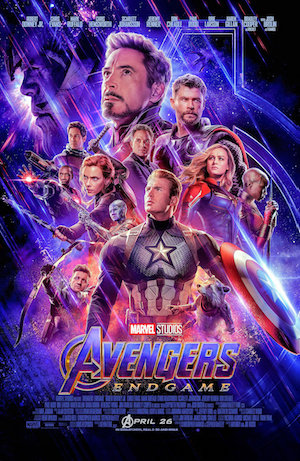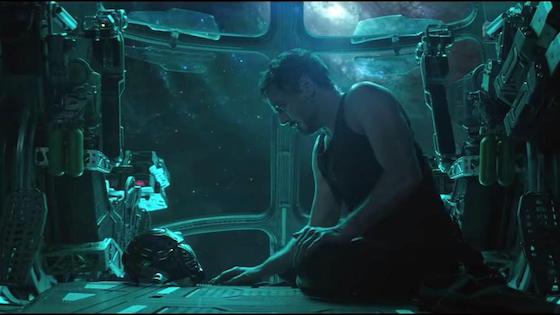

[Rating: Solid Rock Fist Up]
The overwhelming feeling I had coming out of the three-hour Avengers: Endgame—besides my bladder being about to burst—was a kind of epic satisfaction.
It’s an affirmation of Marvel Studios’ storytelling strategy of connecting its films in a shared universe, but maybe more significantly, it’s proof that the franchise’s consistent release schedule gives the viewer better short-term recall and deeper emotional investment.
Remember when Peter Jackson’s final chapter of The Lord of the Rings trilogy, The Return of the King, came out, and the talk was about how it had multiple endings that seemed to go on forever? That’s because after 560 minutes (and that was the total for the shorter theatrical versions), there’s a lot of character wrap-up that needs to happen. And on an epic journey like the first 21 movies of the Marvel Cinematic Universe (MCU), for the story to be done correctly, the final chapter needs a requisite amount of time to offer closure.
The miraculous thing about Avengers: Endgame is that not only does it manage to deliver on closing character arcs (and pay off foreshadowing) from 11 years of films, but its directors Joe and Anthony Russo also took the proper amount of screen time at the outset of the movie; the time needed to make its viewers feel the weight of uber-villain Thanos’ “Snap Heard ‘Round the Universe” from 2018’s Avengers: Infinity War. For everything you read about the new movie’s gigantic climactic action sequence (which itself feels like a bold undertaking), understand that the bolder decision was to make loss and disappointment the emotional center of the film, and to ground everything in that feeling.

Avengers: Endgame begins with Tony Stark (Robert Downey Jr.) isolated in space, reckoning with his failure to prevent Thanos from killing half the universe, and recognizing his own imminent death as his ship slowly loses oxygen. And it gets worse for Tony from there. Downey has been building towards this performance since 2008’s Iron Man, and it’s a testament not only to the writers for tracking his development throughout multiple films but especially to Downey for being the emotional through-line that propels each film forward.
Chris Evans serves a similar function as Steve Rogers—though in a more stoic sense—and both characters get ample opportunity to be challenged along the lines of their core beliefs and traits. As Thor, Chris Hemsworth is handed a more overtly comic situation, even as he deals with his own personal failure, and the result is spotty.
Because of the episodic nature of the Marvel franchise, Avengers: Endgame really does feel more like the final installment of a TV series than a movie. That’s not to say it isn’t epic in scope and onscreen composition, it’s just that there are so many carefully planned story arcs (as well as references and callbacks) that were started in earlier MCU films that one can’t help but feel the weight of stories that have so consistently spanned this much time.
To have those storylines come to dramatically satisfying conclusions is nothing short of remarkable.
This review is part of Eric Melin’s “LM Screen” column that appears in the upcoming summer edition of Lawrence Magazine.








Comments on this entry are closed.